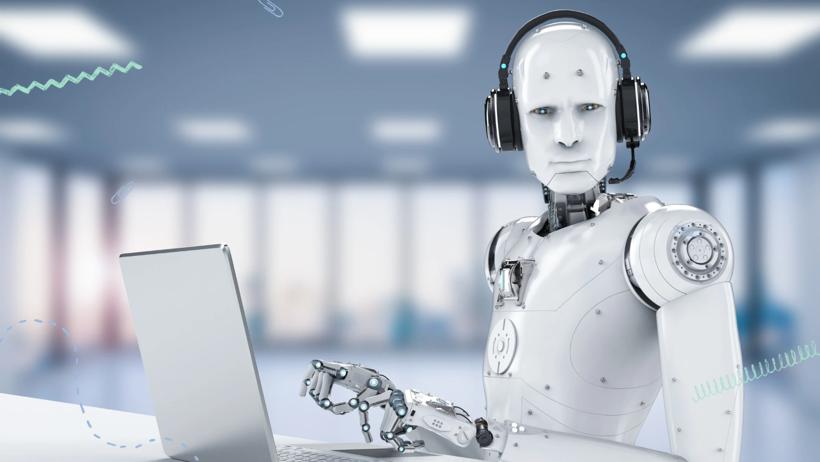Tags:


In the ever-evolving landscape of education, the rise of Artificial Intelligence (AI) reads like a digital saga, promising to reshape the very essence of how students learn and educators teach. Yet, as we embark on this journey of technological marvels, it’s crucial to shed light on the looming shadows that AI casts over the heart of education – the human touch.
List of Content:
1. Riding the Wave: The Risks of Over-Reliance
– Exploring concerns about students becoming overly reliant on AI for learning tasks.
2. Navigating New Waters: The Impact on Mentoring
– Unveiling the potential benefits and cautions of AI-driven mentoring through Khan Academy’s Khanmigo.
3. Unveiling Biases: A Call to Consciousness
– Recognizing the unintentional biases in AI systems and the need for vigilance and rectification.
4. The Human Touch: Beyond Algorithms
– Highlighting the irreplaceable role of human connection and empathy in education.
5. Striking a Harmonious Balance
– Advocating for a collaborative approach, ensuring AI enhances education without overshadowing human elements.
Riding the Wave: The Risks of Over-Reliance
Imagine a classroom humming with the soft whirr of AI-powered systems grading assignments. It’s a scene painted with promises of efficiency, but within this digital utopia lies a hidden concern – the delicate balance between technological advancement and fostering independent critical thinking (Axon Park, 2023). As AI takes on more tasks, from grading to personalized learning paths, the risk of students becoming too reliant on algorithms grows.
Let’s envision a world where AI crafts individual learning paths for students, tailoring education to their unique needs. While this customization holds potential, it begs the question: Are we nurturing independent thinkers, or are we at risk of creating a generation overly dependent on digital guidance? The challenge is to strike a balance, ensuring AI enhances academic excellence without overshadowing the development of resilient, problem-solving minds.
Navigating New Waters: The Impact on Mentoring
Embark on a journey with Khan Academy’s Khanmigo, a real-life example where AI becomes a digital companion in the educational adventure. This AI-driven platform showcases the positive possibilities of personalizing learning experiences (Analytics Vidhya, 2023). Imagine students guided by a digital mentor, adapting lessons to individual needs and providing real-time support. It’s a story of potential benefits but also a cautionary tale urging educators to tread carefully.
In this AI mentor-driven classroom, the digital guide identifies individual learning styles and adapts content delivery, enhancing learning outcomes. However, the concern arises when we question AI’s ability to comprehend the emotional nuances of a student’s journey. Picture a student facing personal challenges that impact their academic performance. An AI mentor may struggle to offer the emotional support a human mentor could provide, highlighting the importance of preserving the unique human touch in education.
Unveiling Biases: A Call to Consciousness
In the vast realm of AI, biases and stereotypes emerge as unwelcome intruders. Real-life stories unfold where biases in AI systems inadvertently shape student experiences. It’s a call to consciousness, urging the education community to actively engage in identifying and rectifying these biases. Imagine a classroom where an AI-driven assessment tool perpetuates gender biases, favoring certain demographics and disadvantaging others. This scenario underscores the need for continual vigilance and proactive measures to detect and rectify biases within AI systems. As educators and technologists collaborate, fostering awareness among students about potential biases in AI systems becomes essential.
The Human Touch: Beyond Algorithms
Amidst algorithms and data-driven insights, a poignant reality surfaces – the irreplaceable role of the human touch. Picture a student navigating the complexities of adolescence, seeking not just answers but understanding, empathy, and support. AI, for all its prowess, might struggle to replicate the warmth of human connection. Consider a scenario where a student faces personal challenges—a loss, a difficult transition. An empathetic teacher can discern these cues, offering not just academic support but a compassionate ear. The human touch in education goes beyond the transfer of knowledge; it’s about forging connections, building trust, and nurturing the socio-emotional well-being of students.
Striking a Harmonious Balance
As we orchestrate the future of education, the key lies in striking a harmonious balance. AI has the power to revolutionize education, but it demands thoughtful consideration and proactive measures. It’s a collective responsibility of schools, teachers, education technology companies, and mentors to ensure that AI is not just a tool for enhancement but a force for good. Envision a classroom where AI seamlessly integrates, identifying individual learning styles, tailoring lessons, and providing real-time feedback. Human mentors play a pivotal role in guiding students through the emotional nuances of their educational journey. This collaborative approach involves not just the adoption of AI but a comprehensive strategy aligning technological innovation with educational philosophy.
In conclusion, the marriage of AI and education holds immense promise, painted with stories of transformation and innovation. Yet, it requires the wisdom to navigate potential pitfalls, ensuring that the digital revolution augments the human experience rather than replacing it. Let’s embark on this journey together, harnessing the power of AI to elevate education while safeguarding the human elements that make learning a truly transformative adventure.
Sources
Retrieved from https://www.itransition.com/ai/education
Ashmini Kalika Karunarathne
Mar 28, 2024
0